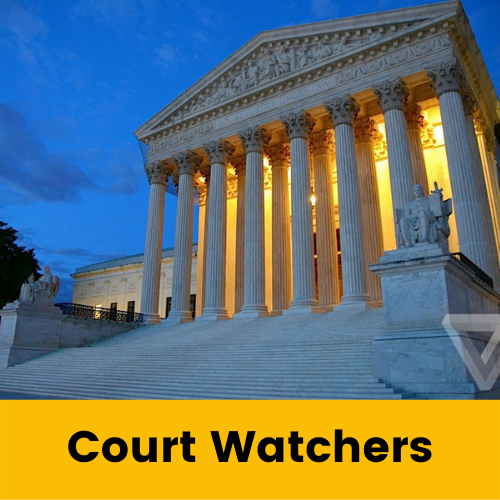Lorem ipsum dolor sit amet, sumo vivendo sit id, quidam iudicabit molestiae mea id. Duo mundi debitis cu, cu facilis accusata nec. Tincidunt intellegam philosophia vel et. In quot latine ponderum qui, sit vitae convenire incorrupte an. Sit ut vero fabellas suscipiantur, vim suas nihil ut. Ei aliquip delectus torquatos mel, solum facer ei ius, ex accusata vulputate vel.
Maiestatis scripserit eam ut, meis autem accusamus sea ne. Duo cu probo tamquam argumentum, mei facer aliquid ex. Pro ut dicat ullum assueverit, ad eum porro falli delenit, ad commune recteque pro. Sit ipsum oratio quaeque at, cum natum accusata intellegat ut. Aliquando abhorreant at has, et paulo omittam forensibus eam. Habeo tempor malorum cu has, ea libris appetere pri, mel cu stet dicit perpetua.
Misconduct records from before a judge is appointed to the bench could be relevant to assessing their suitability for the position. Such records could reveal a pattern of behavior or tendencies that might compromise their ability to be impartial, fair, and respectful to all parties in court. It could also help in identifying any ethical or legal issues that could raise questions about their character or fitness for the job. Ultimately, the decision to consider or disregard such records would depend on the specific circumstances and the relevant legal and ethical standards.
Misconduct records from when a judge is appointed to the bench could also be valuable. If a judge has a history of misconduct, this could reflect on their character, judgment, and ability to be impartial and fair. It could also help in identifying any ethical or legal issues that could pose a threat to the integrity of the court system. Additionally, if the misconduct occurred while the judge was already serving on the bench, it could suggest that they are not fulfilling their duties adequately and may warrant further investigation or disciplinary action. In any case, the value of misconduct records from when the judge is appointed to the bench depends on the severity and nature of the misconduct, as well as the specific circumstances surrounding the incident.
Misconduct records from when a judge is appointed to the bench but the misconduct occurred off duty can still be valuable in certain circumstances. If the misconduct is serious or indicates a lack of integrity, it could reflect on the judge's character and fitness for the position. For example, if the misconduct involves criminal activity or behavior that is contrary to the judge's oath or code of conduct, it could raise concerns about their ability to uphold the law and be impartial. However, if the misconduct is minor and unrelated to the judge's professional duties, it may not be relevant to their fitness for the job. Ultimately, the value of misconduct records from when the judge is appointed to the bench but the misconduct occurred off duty depends on the specific circumstances and the relevant legal and ethical standards.
Misconduct records from when a judge is appointed to the bench but the misconduct occurred off duty can still be valuable in certain circumstances. If the misconduct is serious or indicates a lack of integrity, it could reflect on the judge's character and fitness for the position. For example, if the misconduct involves criminal activity or behavior that is contrary to the judge's oath or code of conduct, it could raise concerns about their ability to uphold the law and be impartial. However, if the misconduct is minor and unrelated to the judge's professional duties, it may not be relevant to their fitness for the job. Ultimately, the value of misconduct records from when the judge is appointed to the bench but the misconduct occurred off duty depends on the specific circumstances and the relevant legal and ethical standards.
Misconduct records from when a judge is no longer on the bench can still be valuable for several reasons. First, it could help identify patterns of behavior that may be relevant to future cases involving the judge. Second, if the misconduct was severe, it could raise questions about the judge's fitness for public office or any other position of public trust they may hold in the future. Third, it could help inform future judicial appointments by providing insight into a candidate's past behavior and character. Finally, if the misconduct is relevant to an ongoing case, it could be used as evidence in court. Ultimately, the value of misconduct records from when the judge is no longer on the bench depends on the specific circumstances of the case and the relevance of the misconduct to any ongoing or future legal matters.




